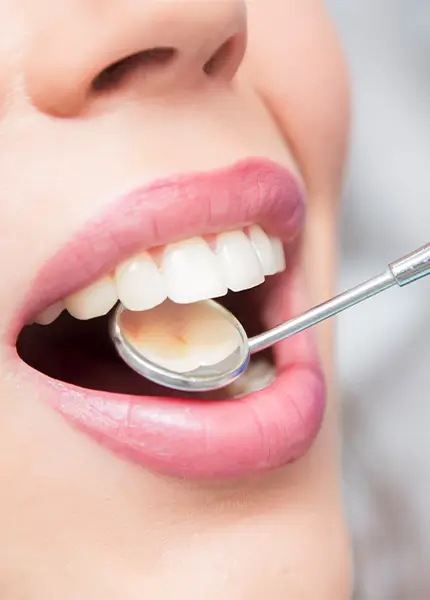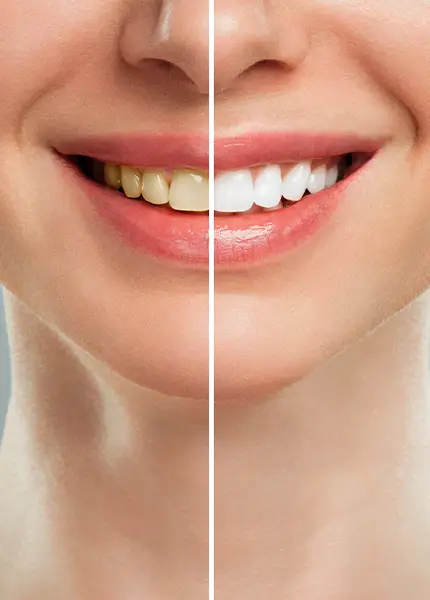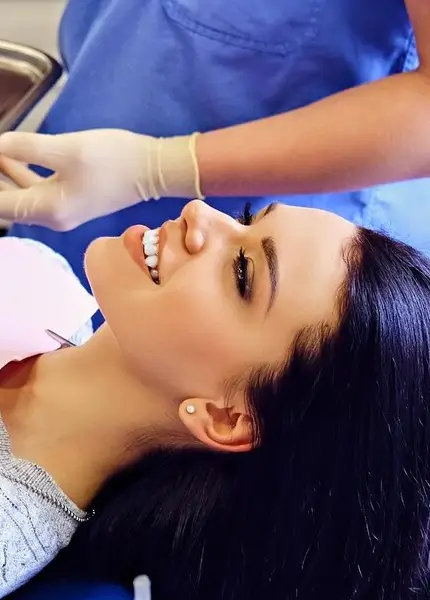Zirconium Veneers in Turkey
Zirconium veneers are porcelain tooth veneers made from zirconia ceramic, which is created by mixing zirconium with oxygen in special furnaces. This material is compatible with soft tissue, making it a popular choice for patients with metal allergies. Zirconium veneers are widely used to treat cavities or for aesthetic purposes, and they offer several benefits, such as:
- Compatibility with soft tissue and metal-free option for allergies
- Natural tooth color reproduction through light transmission
- Heat insulating feature, reducing cold and hot sensitivity on teeth
- Smooth and non-porous surface, preventing plaque accumulation
- Resistant to tooth-yellowing factors like tea and coffee, with stable color over time
- Long-lasting with proper examination and maintenance
The zirconium veneer procedure begins with local anesthesia to numb the treatment area. The teeth are then reduced and shaped to accommodate the veneer, and the color is selected to match the natural tooth color. The prepared veneer is then applied with a special adhesive. After the procedure, patients should avoid eating for 30 minutes.
Laminate Veneers in Turkey
Laminate veneers, also known as "leaf veneers," are thin layers of veneer applied to healthy teeth. This type of veneer requires minimal tooth reduction and preserves natural tooth color due to its translucent nature. Laminate veneers are solid in structure and will not deteriorate in color over time.
The laminate veneer procedure begins with a proper examination that includes specific tooth measurements. The veneers are then designed and applied to the teeth with a special adhesive, minimizing tooth reduction as much as possible. Laminate veneers are durable and can last for many years with proper care.
Advantages of Laminate Veneers in Turkey
- Long-lasting with proper care
- Transparent, preserving natural tooth appearance
- Minimal tooth reduction for robust teeth
- Solid color that will not change over time
- Smooth surface
Laminate veneers are suitable for patients with aesthetically impaired teeth or those who have not achieved desired results from teeth whitening. They can also be used to correct crooked teeth and close gaps between teeth.
Porcelain Veneers in Turkey
Porcelain veneers are thin films of porcelain, with thicknesses ranging from 0.5 mm to 2 mm. They are applied to the front surface of the tooth to improve its appearance. Porcelain veneers are customized to match the shape, size, and color of the natural tooth, providing a seamless and natural look.
The porcelain veneer procedure starts with a thorough examination and consultation with the dentist to determine if you are a suitable candidate.
The cost of veneers in Turkey varies according to the quantity of veneers required, the type of veneers chosen, and the clinic visited. However, because Turkey has some of the world's most affordable dental costs, you should anticipate to pay less for veneers in Turkey than in other nations.
Getting veneers usually requires two to three visits during your stay in Turkey. Your dentist will evaluate your teeth, take impressions, and prepare your teeth for veneers during the first visit. Your dentist will install the veneers on your teeth, examine the fit and make any necessary modifications during the second visit. At this point your dentist will tell you if you need a third visit or not.
Your veneers have been covered by Estedian assurance for two years. If you experience any issues with your veneers, such as discoloration, cracking, or breaking that are not caused by user error, it is crucial that you contact us immediately. Our dental specialists will be available to resolve any problems you may have as soon as possible.
Veneers are generally used for aesthetic reasons and shouldn't be used to correct misaligned bites or straighten teeth. If you have a problem with your bite or have crooked teeth, your dentist might recommend orthodontics or dental implants.
You can have veneers placed on all of your teeth, but it is not usually considered necessary. Your dentist can help you determine the best approach for your individual needs and goals.





